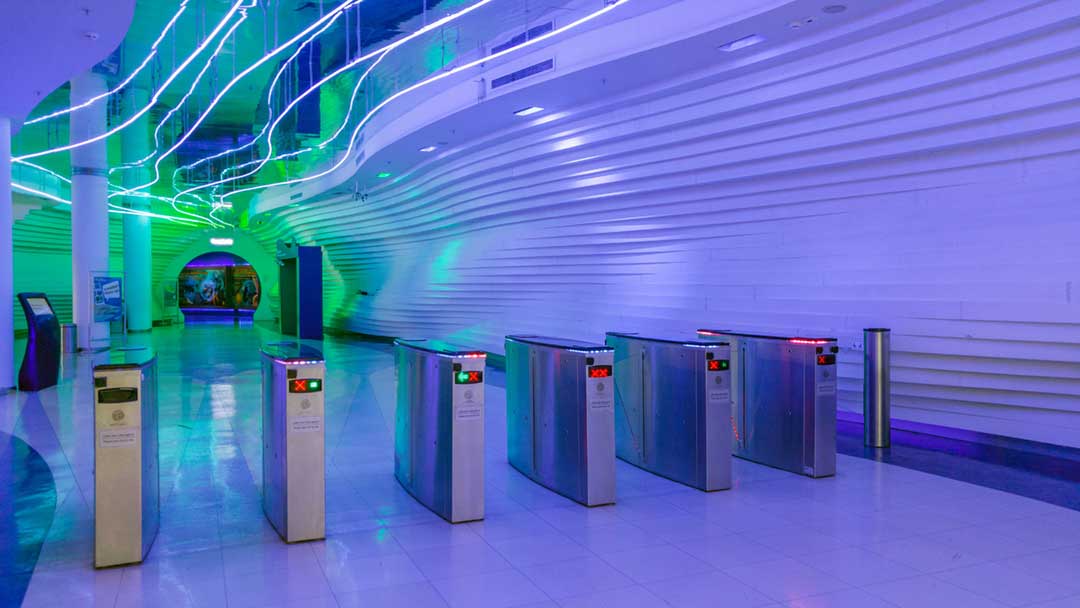Kastle Systems | Benjamin Paltiel, Bisnow Custom Content Writer
Originally published by Bisnow, click here to read the article.
When it comes to using their office building amenities, employees may only visit the on-site fitness center or the first-floor café once a week, if that. But without fail, those same employees will walk in and out of the building doors and through security gates multiple times a day. For property managers, those interactions are an opportunity.
Smart buildings and their tech-enabled management systems are empowering commercial property managers to create the personalized experiences tenants crave, including while entering and exiting a building. But the key to creating more personalized building security isn’t a new technology.
It’s the smartphone in your pocket.
“Smart access control provides a consistent opportunity to either delight tenants with a convenient, personalized benefit, or annoy them with a cumbersome hassle,” said Todd Burner, chief product officer at Kastle Systems, which designs and implements access control systems for some of the nation’s most tech-forward buildings. “Being able to breeze through the entrance and exit is potentially the most personalized tenant experience that a smart-building occupant will enjoy daily.”
While many buildings still rely on decades-old technologies like proximity cards or key fobs to give occupants access, Burner said that mobile access control through smartphones is “the only relevant technology” that owners and property managers should implement in a modern building.
Why Mobile Access Control Works
More than 80% of Americans now own a smartphone, according to Pew Research. The ubiquity of these devices make them an ideal platform for identification, Burner said. Since most people tend to carry their phone on their person at all times, smartphones can track a worker’s whereabouts more reliably than an access card or key fob.
When a worker enters or exits a building, a mobile credential on a cellphone app uses a Bluetooth signal to trigger the reader to unlock a door. That signal goes through even if the phone is in a pocket or bag, meaning mobile access control is effectively hands-free, obviating the need to fumble with keys, cards or fobs.
And while smart technologies might seem more like perks than investments, they can offer a serious boost to return on investment. Deloitte surveyed 750 CRE executives and found that these leaders anticipate that smart building technologies will have a growing influence on tenants’ leasing decisions. Of that group, 68% believe tenants will pay at least a 6% to 10% premium for office space in a smart building.
“With the rise of telecommuting, coworking, flexible office and the on-demand economy, the office has to be a compelling place to come to work,” Burner said. “A younger workforce is demanding a more convenient, flexible and customized work experience, top to bottom.”
Mobile Access Control Keeps Tenants Safe
Adoption of mobile access control has been slowed by concerns that Bluetooth signals can be copied, intercepted or hacked. But Burner argued that mobile Bluetooth credentials are significantly more secure than the standard key card.
With mobile Bluetooth credentials like Kastle Systems’ KastlePresence, each access signal is uniquely encrypted with every use, tied to only one mobile device so it cannot be copied. Prox cards, by contrast, can be copied in seconds with a card duplicator device sold on Amazon.
And unlike with prox cards or fobs, users are unlikely to lose or share their smartphones, lowering the danger that the access device will fall into the wrong hands. Even if it were stolen, Burner said, an administrator can deactivate access rights immediately from a laptop.
Since most employees keep their phones on them at all times, mobile access control can also help to identify the whereabouts of staff in an emergency. Providers like Kastle Systems have begun to embed mass communication functionality into their apps, so that a property manager or company monitor can send out emergency messages directly to the employees’ phones.
Our Smart Future
Mobile access control increases convenience and safety for both employees and property managers, Burner said. The same technology that will call a smart elevator for employees when they walk into the building can also make sure that no one with a stolen card can move past the lobby — unless the credentials match ones that just walked in the building, the elevator would not take the passenger anywhere inside the building.
A huge benefit of mobile access control for property managers is that the database and software platform is located in the cloud rather than on-site. Outdated prox card databases that have on-site access servers may create vulnerabilities that a cloud-based structure can prevent. With a cloud-based structure, access providers like Kastle can continually push software updates and security innovations to the site infrastructure in real time, effectively “future-proofing” the access control investment the manager makes today.
“The security system will evolve as technology develops, all without property managers lifting a finger,” Burner said. “That limits the costs and uncertainties of system replacement.”
Being cloud-based also helps the system protect against cybercriminals accessing the network. Since the servers and data reside remotely in a shared monitoring center, malicious hackers cannot exploit vulnerabilities through the physical access control system.
This feature was produced in collaboration between the Bisnow Branded Content Studio and Kastle Systems. Bisnow news staff was not involved in the production of this content.
Contact Benjamin Paltiel at [email protected]

